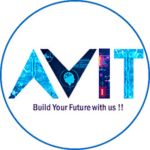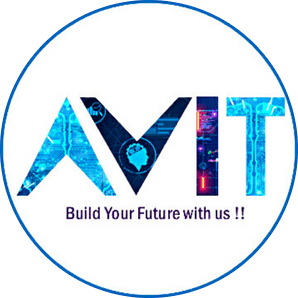- Home
- »
- Python Developer
Python Developer
A Python developer is a professional who uses the Python programming language to develop software applications for various industries, including web development, data science, and artificial intelligence. They are responsible for writing, testing, and maintaining Python code to ensure it meets the requirements of the application.
Program Features
- Live Instructor- Led Sessions
- Fundamentals to Advanced
- Hands-on Live Projects
- Assignments and MCQs
- Hands-on Learning
- 24*7 Support
About Python Developer
A Python Developer course is a training program designed to provide students with a comprehensive understanding of the Python programming language and its application in software development. The course typically covers fundamental concepts of programming, data structures, algorithms, object-oriented programming, and functional programming in Python. It also covers advanced topics such as web development frameworks like Django, data science libraries like NumPy and Pandas, and machine learning frameworks like TensorFlow and PyTorch.
In addition to learning Python syntax and libraries, students in a Python Developer course also learn best practices in software development, such as version control, testing, debugging, and code optimization. They also develop the ability to work collaboratively on software development projects and communicate technical ideas effectively.
Upon completion of a Python Developer course, students can pursue careers as Python developers, data analysts, data scientists, machine learning engineers, or web developers. Python is a widely used language in many industries, including technology, finance, healthcare, and entertainment, which makes it a valuable skill for those looking to start or advance their careers in these fields.
Overall, a Python Developer course is an excellent option for those interested in programming and software development, as it provides a strong foundation in one of the most popular and versatile programming languages in the world.
Program Features
Shareable Certificate
Earn a Certificate after Course completion
Internship Opportunities
A chance for students or young professionals to gain valuable experience
Lab Sessions
We Provide 80% Hands-on learning
Placement Assistance
100% Job Placement assistance
Language
Avilable in Both Language Hindi & English
What Will You Learn
Programming Fundamentals
basic concepts of programming such as variables, loops, conditionals, functions, and control structures
Web Development Frameworks
popular web frameworks such as Flask or Django for building web applications.
Data Structures and Algorithms
fundamental data structures like lists, dictionaries, and sets, as well as algorithms like sorting and searching.
Data Science Libraries
libraries like NumPy and Pandas for data manipulation and analysis.
Object-Oriented Programming
principles of OOP, including classes, objects, inheritance, encapsulation, and polymorphism.
Machine Learning Frameworks
libraries like TensorFlow and PyTorch for building and deploying machine learning models
Skills You Will Gain
- PyCharm
- Server Configuration and Management
- Server Security
- Networking
- Storage and Backup
- Virtualization
- Cloud Computing
Who can enroll in this course?
Anyone with an interest in Python Developer and the necessary prerequisites can enroll in a Python Developer course. Typically, Python Developer courses are designed for individuals who have a technical background in computer science or information technology.
12th Students
Graduates
Engineers
working professionals,
Job Opportunities
Python is one of the most popular programming languages in the world, and as a result, there is a wide range of job opportunities available for individuals with strong Python development skills. Completing a Python Developer course can prepare you for a variety of job roles
1. Web Developer
Web developers use Python web frameworks like Django and Flask to build scalable and dynamic web applications. They are responsible for creating and maintaining web pages, optimizing the website for speed and performance, and ensuring the website’s security.
2. Data Scientist
Data scientists use Python to analyze large and complex datasets, build predictive models, and generate insights to drive business decisions. They use machine learning and statistical analysis techniques to extract valuable insights from data.
3. Data Analyst
Data analysts use Python to analyze and visualize data, create reports, and identify trends and patterns in data. They use various data analysis tools and techniques to support business decision-making processes.
4. Full Stack Developer
Server Engineers may work for IT consulting firms and provide consulting services to organizations that require expertise in server engineering. In this role, you would work with clients to identify their server infrastructure needs and design solutions to meet those needs.
5. Automation Engineer
Automation engineers use Python to develop and maintain automated testing frameworks, scripts, and tools. They work on creating test cases, executing automated tests, and reporting bugs and issues.
Course Curriculum
Module 1: Introduction to Python Programming
- Basics of Python syntax
- Variables, data types, and operators
- Control flow statements (if, loops)
- Functions and modules
- Input/output operations
Module 2: Data Structures and Algorithms
- Lists, tuples, sets, and dictionaries
- String manipulation
- File handling
- Recursion
- Sorting and searching algorithms
Module 3: Object-Oriented Programming (OOP)
- OOP concepts (classes, objects, inheritance, polymorphism)
- Encapsulation, abstraction, and data hiding
- Exception handling
- Testing and debugging
Module 4: Web Development with Python
- HTML and CSS basics
- Introduction to web frameworks (e.g., Flask, Django)
- Creating dynamic web applications
- Database integration (e.g., SQLite, MySQL)
Module 5: Database Programming
- Introduction to SQL
- Database concepts (tables, queries, joins)
- Using Python to interact with databases
- Database connectivity and management (e.g., SQLite, PostgreSQL)
Module 6: GUI Programming
- Introduction to GUI frameworks (e.g., Tkinter, PyQt)
- Building graphical user interfaces
- Event-driven programming
- Creating interactive applications
Module 7: Data Analysis and Visualization
- Introduction to data analysis libraries (e.g., Pandas, NumPy)
- Manipulating and analyzing data
- Data visualization using libraries like Matplotlib, Seaborn
Module 8: Web Scraping and Automation
- Basics of web scraping
- Using libraries like
- Using libraries like Beautiful Soup and Scrapy for web scraping
- Handling APIs and JSON data
- Automating tasks with Python (e.g., web automation, file manipulation)
Module 9: Machine Learning and Data Science
- Introduction to machine learning concepts
- Supervised and unsupervised learning algorithms
- Using libraries like scikit-learn for machine learning tasks
- Data preprocessing and feature engineering
- Model evaluation and selection
Module 10: Deployment and Cloud Computing
- Introduction to cloud platforms (e.g., AWS, Azure)
- Deploying Python applications to cloud platforms
- Containerization using Docker
- Introduction to serverless computing
- Managing cloud resources and scaling applications
Module 11: Web APIs and Microservices
- Building RESTful APIs using frameworks like Flask or Django
- Authentication and authorization for APIs
- Microservices architecture and design principles
- Service discovery and orchestration
Module 12: Testing and Quality Assurance
- Unit testing and test-driven development (TDD)
- Test frameworks like pytest
- Code quality and linting
- Continuous integration and continuous deployment (CI/CD) pipelines
Module 13: Security and Best Practices
- Common security vulnerabilities in Python applications
- Handling user input securely
- Secure coding practices and defensive programming
- Logging and error handling for robust applications
Module 14: Advanced Topics and Specializations
- Advanced Python features and libraries (e.g., generators, decorators)
- Specializations such as data engineering, natural language processing, or computer vision
- Exploring emerging trends in Python development
Module 15: Final Project
- Developing a comprehensive Python project that encompasses the concepts learned throughout the course
- Planning, designing, and implementing the project from scratch
- Testing, debugging, and documenting the project
Module 16: Natural Language Processing (NLP)
- Introduction to NLP and its applications
- Text preprocessing and cleaning
- Tokenization, stemming, and lemmatization
- Sentiment analysis and text classification
- Named entity recognition and part-of-speech tagging
Module 17: Big Data Processing
- Introduction to big data concepts and challenges
- Working with distributed computing frameworks (e.g., Apache Spark)
- Processing large datasets using PySpark
- Data streaming and real-time processing
Module 18: Deep Learning and Neural Networks
- Introduction to neural networks and deep learning
- Building neural networks using libraries like TensorFlow or PyTorch
- Convolutional Neural Networks (CNNs) for image recognition
- Recurrent Neural Networks (RNNs) for sequence data
- Transfer learning and model fine-tuning
Module 19: DevOps and Infrastructure as Code
- Introduction to DevOps principles and practices
- Configuration management tools (e.g., Ansible)
- Infrastructure provisioning with tools like Terraform
- Continuous Integration/Continuous Deployment (CI/CD) pipelines
- Monitoring and logging in a production environment
Module 20: Advanced Web Development
- Websockets and real-time communication
- REST API authentication and authorization mechanisms
- Building scalable and high-performance web applications
- Performance optimization techniques
- Integration with external services and APIs
Python Developer Certification
This Python Developer course rewards you with a certificate of course completion. This is proof of your diligence and sustained endeavor.
Our Python Developer Program is exhaustive and this certificate is proof that you have taken a big leap in mastering the domain.
The knowledge and Python Developer skills you’ve gained working on projects, simulations, case studies will set you ahead of the competition.
Talk about your Python Developer certification on LinkedIn, Twitter, Facebook, boost your resume, or frame it – tell your friends and colleagues about it.
Target Companies

Frequently Asked Questions
Yes, This course is meant for candidates with basic knowledge of computer It is suitable for beginners.
If You not attend the class room session next day we repeat the main tpoics
Yes, If you can’t afford to pay for a Certificate, you can apply for Financial Aid or a Scholarship or discuss through call.
Yes, We provide Free webinar



